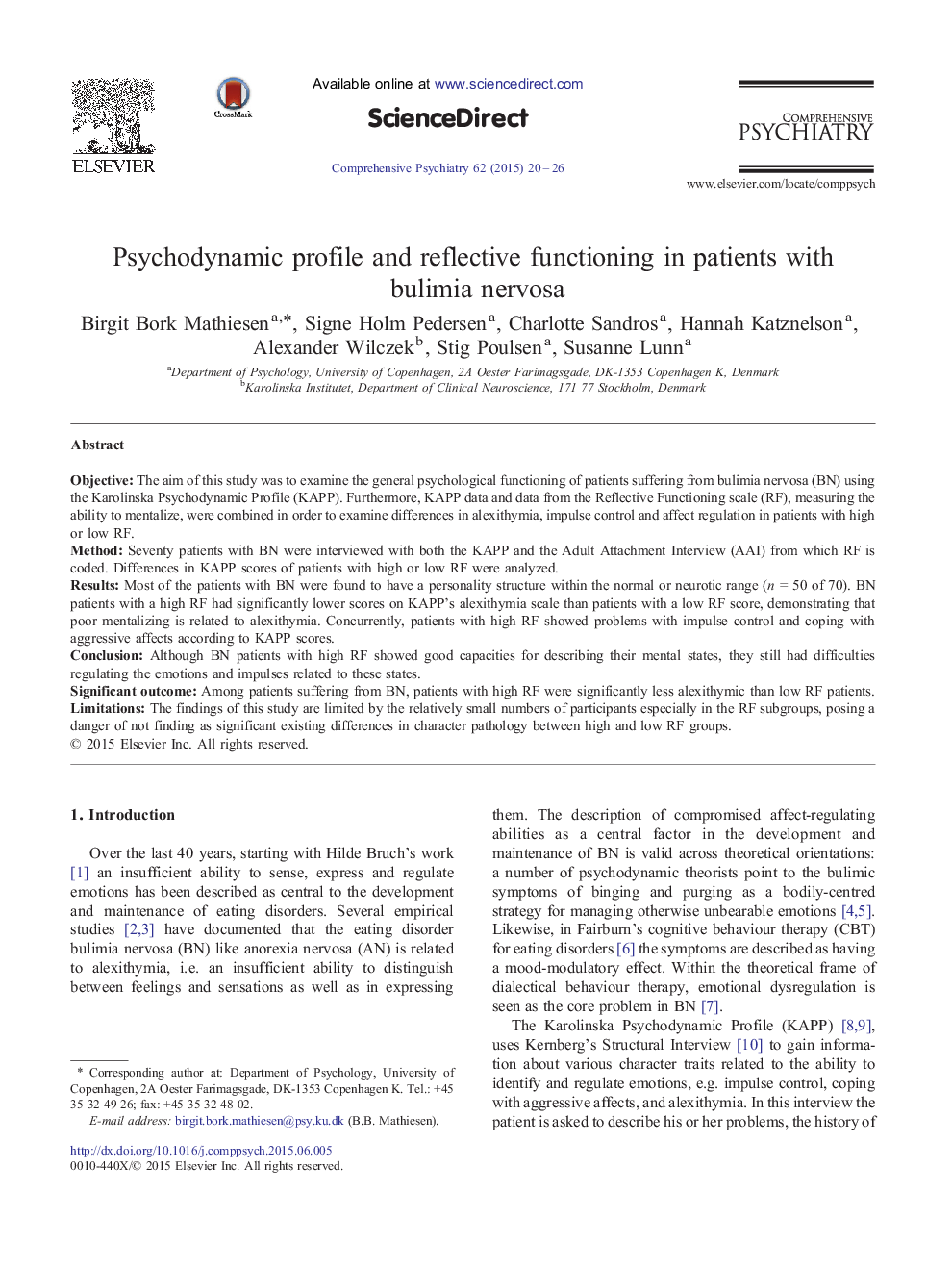| Article ID | Journal | Published Year | Pages | File Type |
|---|---|---|---|---|
| 317962 | Comprehensive Psychiatry | 2015 | 7 Pages |
ObjectiveThe aim of this study was to examine the general psychological functioning of patients suffering from bulimia nervosa (BN) using the Karolinska Psychodynamic Profile (KAPP). Furthermore, KAPP data and data from the Reflective Functioning scale (RF), measuring the ability to mentalize, were combined in order to examine differences in alexithymia, impulse control and affect regulation in patients with high or low RF.MethodSeventy patients with BN were interviewed with both the KAPP and the Adult Attachment Interview (AAI) from which RF is coded. Differences in KAPP scores of patients with high or low RF were analyzed.ResultsMost of the patients with BN were found to have a personality structure within the normal or neurotic range (n = 50 of 70). BN patients with a high RF had significantly lower scores on KAPP's alexithymia scale than patients with a low RF score, demonstrating that poor mentalizing is related to alexithymia. Concurrently, patients with high RF showed problems with impulse control and coping with aggressive affects according to KAPP scores.ConclusionAlthough BN patients with high RF showed good capacities for describing their mental states, they still had difficulties regulating the emotions and impulses related to these states.Significant outcomeAmong patients suffering from BN, patients with high RF were significantly less alexithymic than low RF patients.LimitationsThe findings of this study are limited by the relatively small numbers of participants especially in the RF subgroups, posing a danger of not finding as significant existing differences in character pathology between high and low RF groups.
